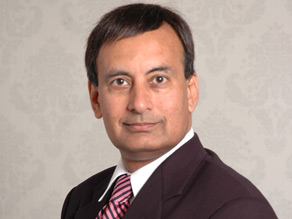In light of the assertion by Pakistan's former Ambassador to the U.S. that the U.S. and Pakistan seek to divorce themselves from each other and that "somebody knew" about Osama bin Laden's presence in Pakistan, this passage comes to mind:
...The ISI was by then convinced it needed to get rid of Bhutto. Having promised to stay out of Afghan politics, she had lectured Hamid Gul on the need to stop the war and start a permanent peace process, arguing for afixed border to be negotiated and for the mujahideen to hand back their ISI-supplied weapons. It was too much for Gul, who in the spring of 1989 began plotting to take Bhutto's life. He approached a mujahideen fighter and financier based in Peshawar, the gateway to the Khyber Pass. As yet unknown to the West or South Asia, Osama bin Laden, a Saudi dissident, whose family had made their fortune in construction, had many prosperous and powerful political connections. He was bored, looking for a new purpose. Gul, who had got to know him via the ISI bureau in Pashawar, had a job in mind.
Husain Haqqani was let into the plan. "Hamid Gul took Osama to see Nawaz Sharif. I was there when he did it. He wanted to put the two of them together so that they could mount a coup and overthrow Benazir." The meeting took place at the Jamaat-e-Islami office in Mansehra, Northwest Frontier Province. Two further meetings took place in Jamaat-e-Islami offices in Peshawar and Lahore. "Gul wanted Osama to pay for the overthrow, preferably with Benazir finished off." There was a huge war chest assembled, with Osama bin Laden rasing $10 million, againsst which he set one precondtion. Nawaz Sharif, who would take over as prime minister, was to transform Pakistan into a strict Islamic state, administered solely by sharia law, an austere theocracy of the type that would shortly rise under the Taliban in Afghanistan. "Sharif agreed," Haqqani said. "The money was already in Pakistan."
- excerpted from Deception: Pakistan, the United States, and the Secret Trade in Nuclear Weapons, Adrian Levy & Catherine Scott-Clark, Walker & Company, 2007, pp. 193-194.
Husain Haqqani was, of course, appointed Pakistan's ambassador to the U.S. a few months after this book was published. Thus Pakistan's civilian leadership implicitly endorsed the above account and considers it 100% true and accurate. If people wonder how it came to pass that the U.S. has so little trust and faith in Pakistan's military, this passage is sufficient explanation - but not the only reason, of course.
Update, 10:55pm: Husain Haqqani claims the authors later acknowledged they erred in suggesting H.H. was an eyewitness or was present. I am attempting to verify this.

No comments:
Post a Comment